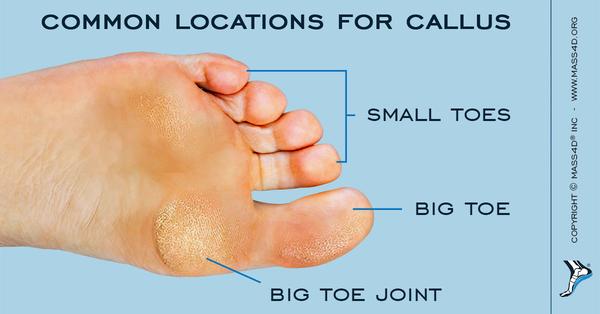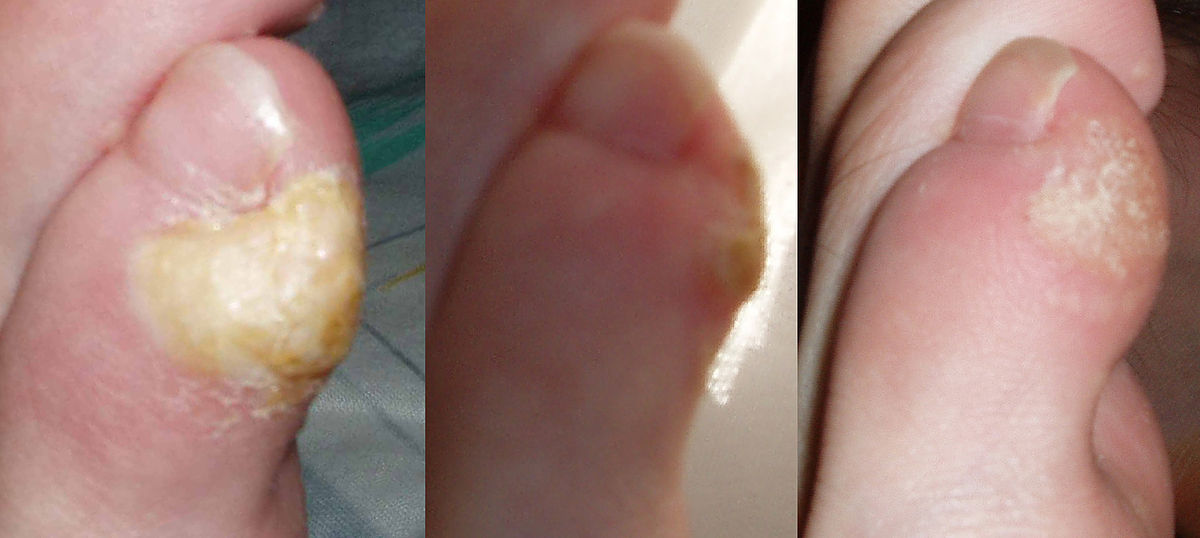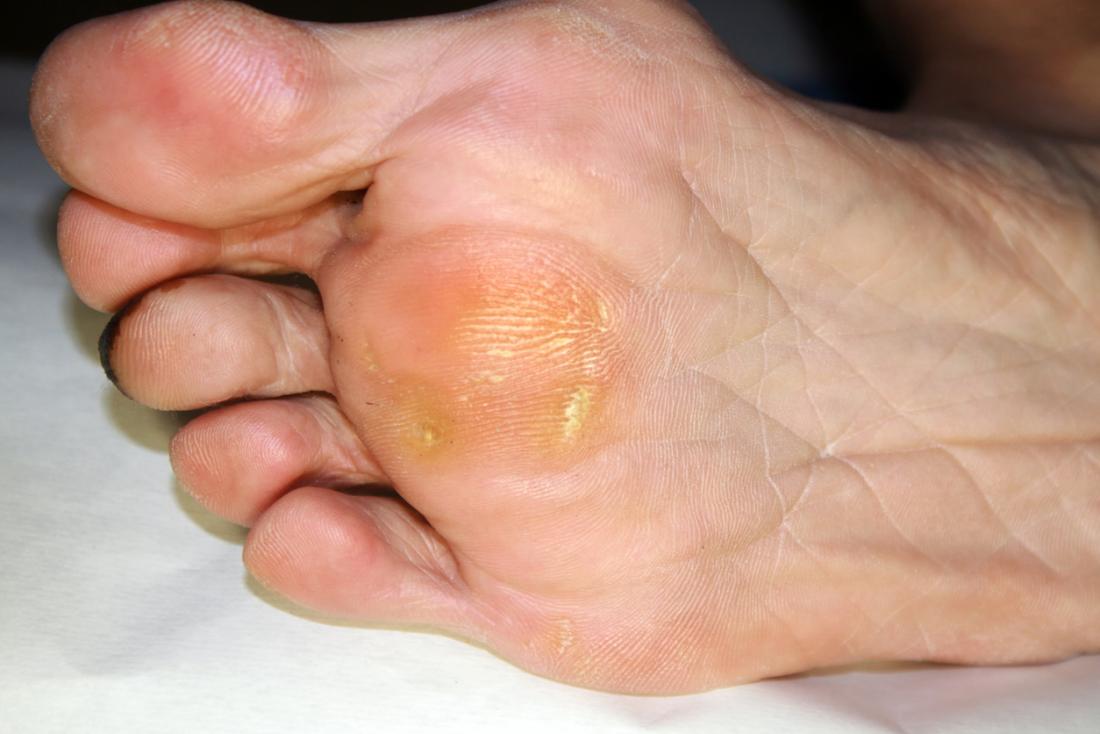
noun, plural cal·lus·es.
- Pathology, Physiology.
- a hardened or thickened part of the skin; a callosity.
- a new growth of osseous matter at the ends of a fractured bone, serving to unite them.
- Also callose. Botany.
- the tissue that forms over the wounds of plants, protecting the inner tissues and causing healing.
- a deposit on the perforated area of a sieve tube.
- (in grasses) a tough swelling at the base of a lemma or palea.
verb (used without object), cal·lused, cal·lus·ing.
- to form a callus.
verb (used with object), cal·lused, cal·lus·ing.
- to produce a callus or calluses on: Heavy work callused his hands.
noun plural -luses
- Also called: callosity an area of skin that is hard or thick, esp on the palm of the hand or sole of the foot, as from continual friction or pressure
- an area of bony tissue formed during the healing of a fractured bone
- botany
- a mass of hard protective tissue produced in woody plants at the site of an injury
- an accumulation of callose in the sieve tubes
- biotechnology a mass of undifferentiated cells produced as the first stage in tissue culture
verb
- to produce or cause to produce a callus
“hardened skin,” 1560s, from Latin callus, variant of callum “hard skin,” related to callere “be hard,” from PIE root *kal- “hard” (cf. Sanskrit kalika “bud,” Old Irish calath “hard,” Old Church Slavonic kaliti “to cool, harden”).
n. pl. cal•lus•es
- callosity
- The hard bony tissue that develops around the ends of a fractured bone during healing.
- An area of the skin that has become hardened and thick, usually because of prolonged pressure or rubbing.
- The hard bony tissue that develops around the ends of a fractured bone during healing.
 Liberal Dictionary English Dictionary
Liberal Dictionary English Dictionary

